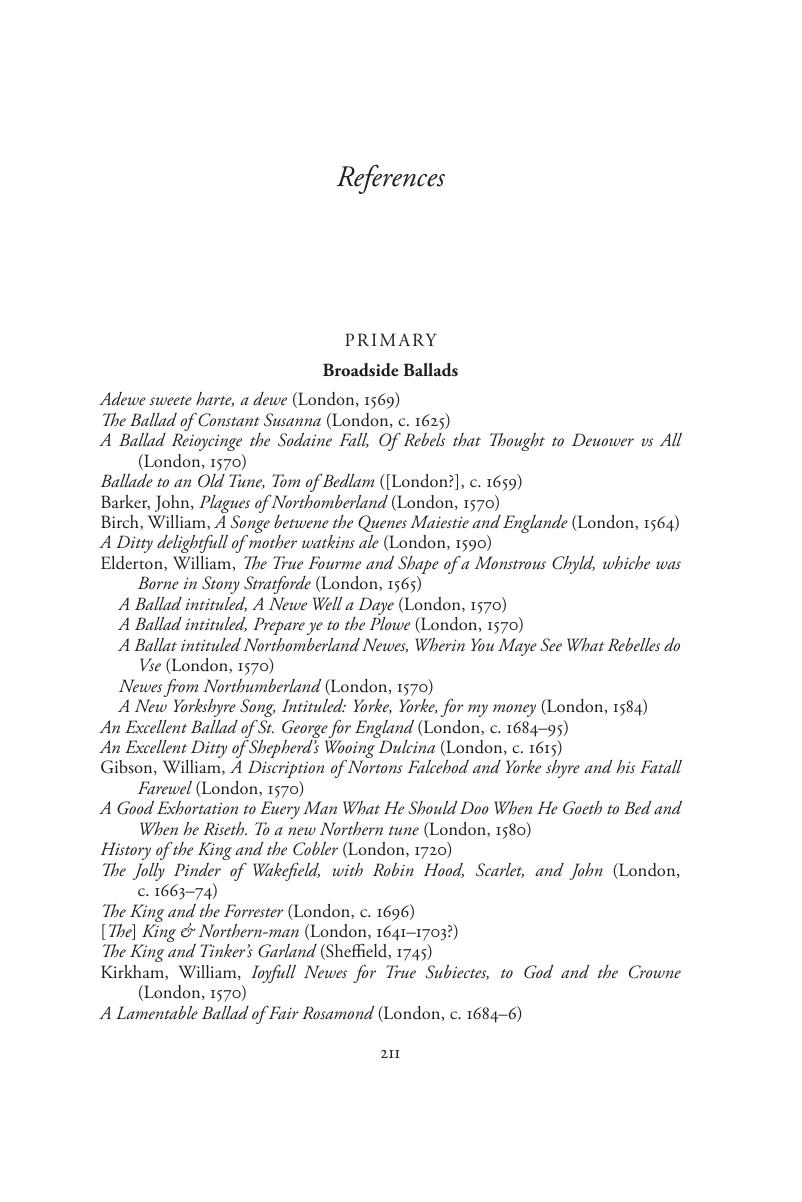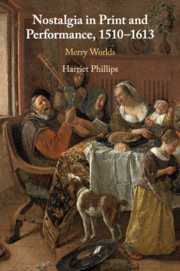Book contents
- Nostalgia in Print and Performance, 1510–1613
- Nostalgia in Print and Performance, 1510–1613
- Copyright page
- Dedication
- Contents
- Acknowledgements
- Abbreviations
- Introduction
- Chapter 1 Merry Worlds
- Chapter 2 Dreamless Art for the People
- Chapter 3 Common People
- Chapter 4 Martin and Anti-Martin, 1588–1590
- Chapter 5 Merry Histories, 1598–1599
- Chapter 6 Shakespeare’s Ballads, 1598–1610
- Chapter 7 The Merry Worlds of Windsor in 1600
- Epilogue
- References
- Index
- References
References
Published online by Cambridge University Press: 08 June 2019
- Nostalgia in Print and Performance, 1510–1613
- Nostalgia in Print and Performance, 1510–1613
- Copyright page
- Dedication
- Contents
- Acknowledgements
- Abbreviations
- Introduction
- Chapter 1 Merry Worlds
- Chapter 2 Dreamless Art for the People
- Chapter 3 Common People
- Chapter 4 Martin and Anti-Martin, 1588–1590
- Chapter 5 Merry Histories, 1598–1599
- Chapter 6 Shakespeare’s Ballads, 1598–1610
- Chapter 7 The Merry Worlds of Windsor in 1600
- Epilogue
- References
- Index
- References
Summary

- Type
- Chapter
- Information
- Nostalgia in Print and Performance, 1510–1613Merry Worlds, pp. 211 - 234Publisher: Cambridge University PressPrint publication year: 2019

